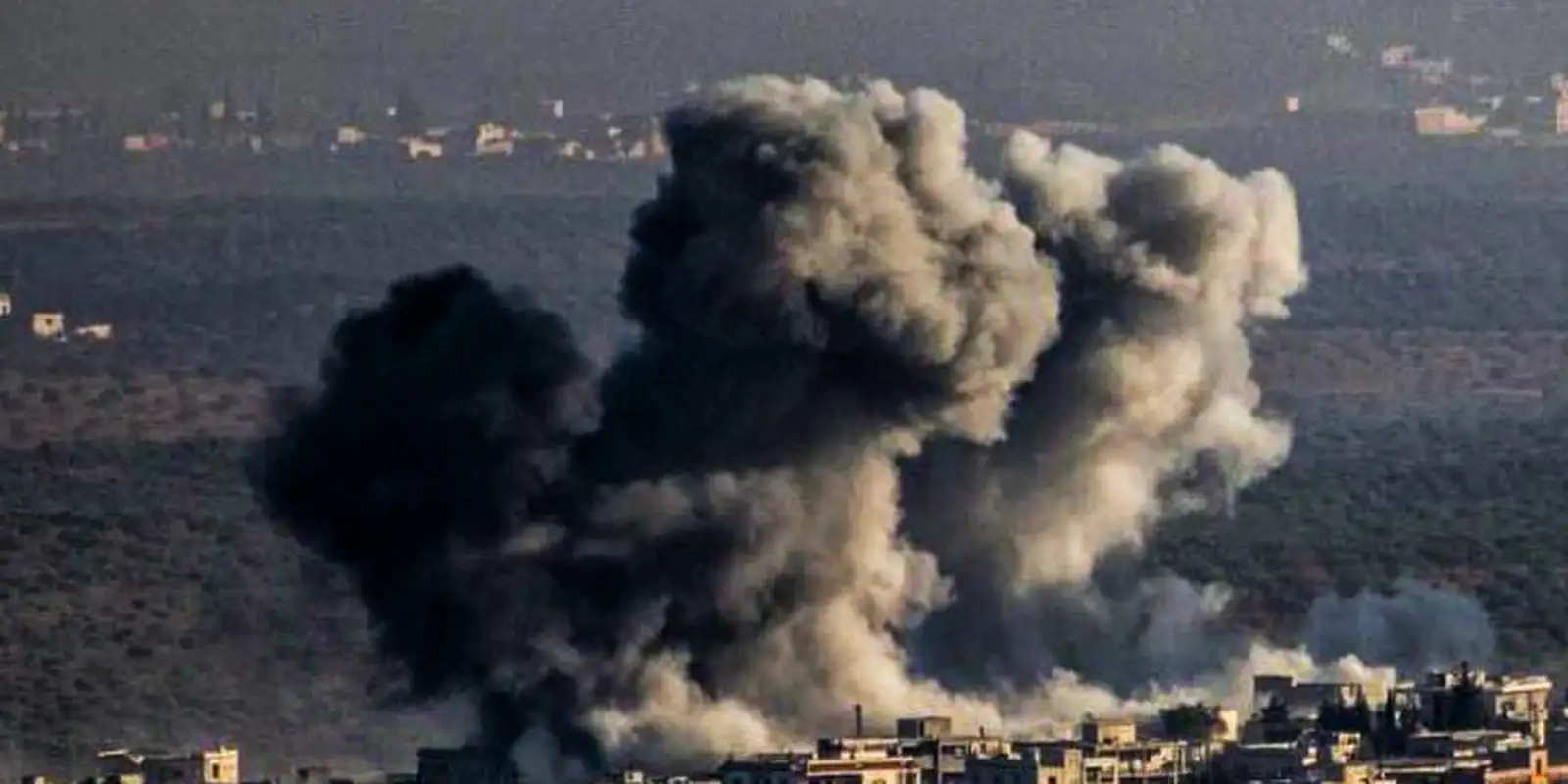Syria’s civil war, which began in 2011, gained a new chapter this weekend because Islamic rebel groups fighting against the government of Bashad Al-Assad took Aleppo, the country’s second largest city with around 2 million inhabitants. In retaliation, Syrian and Russian air forces carry out bombings against rebel positions, both in Aleppo and in the province of Idlib, which is under the control of Islamic jihadists. 
Videos published on social media show dozens of armed men parading through Aleppo, which had already been taken over by rebels in 2016. At the time, they ended up expelled by the Syrian regime after support from the Russian air force.
According to local news agencies, the rebels imposed a curfew in Aleppo after taking control of the city. Syria’s official news agency states that the country’s army has regrouped in the rural area north of the city of Hama, south of Aleppo.
“Joint Syrian-Russian warplanes are intensifying air strikes on terrorist sites, headquarters, weapons and ammunition depots, leaving dozens of casualties and deaths among terrorists,” a Syrian military source told the official news agency. of the country, Sana.
According to the Syrian Presidency’s advisory, Assad stated that he is capable of eliminating the rebels with the help of his allies. “Terrorism only understands the language of force, and it is the language with which we will break it and eliminate it, regardless of its supporters and sponsors. They represent neither people nor institutions, they only represent the agencies that operate and support them”, he declared.
According to the non-governmental organization (NGO) Syrian Observatory for Human Rights, the rebel offensive against the Syrian government began last Wednesday (27) and is estimated to have already caused the deaths of more than 300 people. The organization also reports the mass flight of civilians after the invasion of Aleppo.
Holy war
Among the various Syrian armed groups fighting against the Al-Saad regime, the fundamentalist Islamic group Hayat Thrir al-Sham (HTS) stands out, which was born in 2011 as a group affiliated with Al Qaeda in Iraq and with jihadist ideology, in other words, it advocates a “holy war” to establish Sharia, Islamic law. The Assad regime, on the other hand, is secular, meaning it separates government from religion.
Rashmi Singh, postgraduate professor of International Relations at PUC in Minas Gerais, reported that HTS emerged at the beginning of the Syrian civil war as an arm of Al-Qaeda, breaking away from the group years later.
For the expert, the war in Lebanon opened an opportunity for the offensive against the Assad government, since Hezbollah was one of Syria’s main allies in the fight against these groups.
“Hezbollah was weakened after Israel entered Lebanon. We have also seen attacks by Israel against several Iranian military leaders in Syria. This forms a big part of the decision by groups like Hayat to re-enter a fight for the city of Aleppo,” he commented.
Proxy war
The civil war that has already killed around 300,000 Syrians and led to the displacement of millions of people in the Arab country is a type of proxy war, that is, a proxy war that involves the main powers on the planet, as explained by the relations professor international studies at the Federal University of ABC in São Paulo (UFABC) Mohammed Nadir.
He argues that the protests known as the Arab Spring, starting in 2010, were used by Western powers to support armed groups and jihadists in the fight against governments not aligned with the West.
“Since the beginning of the civil war, the great powers have been measuring forces in Syria. The United States tried, with the Arab Spring, to overthrow the Assad regime, just as it did with Gaddafi in Libya. It was a great opportunity to change unfriendly regimes in the West and the USA”, recalled Nadir, who is coordinator of Arabic studies at UFABC.
Mohammed Nadir highlighted that Barack Obama’s presidency in the US supported the jihadists against Assad. The rebel groups also reportedly received support from Türkiye and Gulf monarchies such as Saudi Arabia, Qatar and the United Arab Emirates.
For the expert, the current offensive could also be a strategy to target Russia.
“The seizure of Aleppo could also be a strategy to wear down Russia, which is interested in maintaining its military base with access to the Mediterranean Sea, in Syria. Russia is busy with the war in Ukraine and we now have this advance of jihadists in Syria”, he commented.
Despite Assad’s defeat, which lost Aleppo, the international relations professor assesses that it is very difficult for the rebels to maintain the position they have achieved. “The reconquest of Aleppo again will be very bloody because this jihadist alliance will hardly give up the city”, concluded Nadir.















